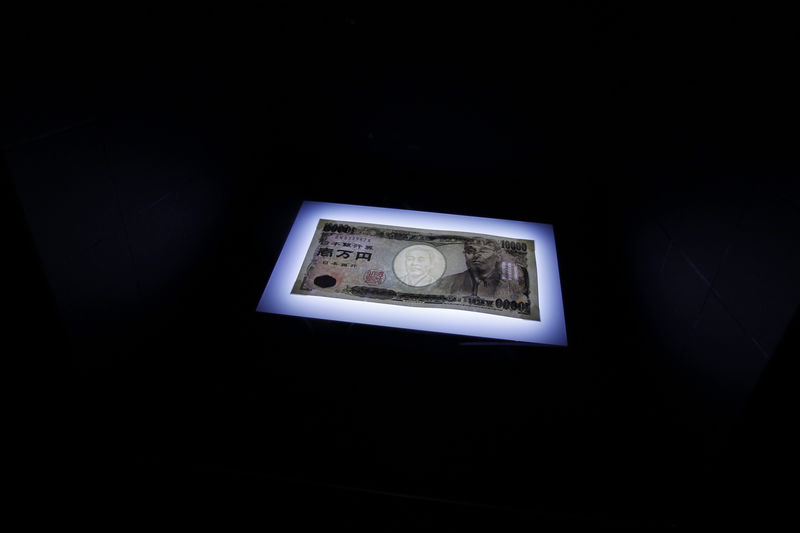Investing.com - The yen rose on Tuesday after North Korea said it had successfully test fired an intercontinental ballistic missile, cooling risk appetite, while the Australian dollar fell after the country’s central bank stuck to a neutral stance on monetary policy.
USD/JPY was down 0.48% to 112.83 by 06.56 AM GMT (02.57 AM ET), pulling back from the seven-week high of 113.46 set on Monday.
South Korea’s military and Japan’s government confirmed that North Korea had fired an “unidentified ballistic missile” which landed in the Sea of Japan. Tokyo strongly protested what it called a clear violation of UN resolutions.
The timing of the launch is significant, come just days before leaders from the Group of 20 nations are due to discuss steps to curtail North Korea’s weapons programs.
The safe haven yen was also higher against the euro and the pound, with EUR/JPY down 0.39% at 128.35, after rising to a 16-month high of 128.95 earlier.
GBP/JPY shed 0.26% to trade at 146.31.
The U.S. dollar index, which measures the greenback’s strength against a trade-weighted basket of six major currencies, dipped 0.11% to 95.84 after rising as high as 96.05 overnight.
Upbeat U.S. manufacturing data on Monday reinforced expectations for another rate hike by the Federal Reserve this year and helped the dollar index to rebound from Friday’s nine-month trough.
The dollar slumped last week amid expectations that central banks in Europe and Canada are getting ready to join the Fed in tightening monetary policy.
The euro was little changed against the dollar, with EUR/USD at 1.1356, holding below the 14-month highs of 1.1444 set on Friday.
Meanwhile, AUD/USD was down 0.6% to 0.7614 after the Reserve Bank of Australia kept interest rates on hold at a record low 1.5% on Tuesday and noted that economic indicators remain “mixed.”
The rate statement disappointed some investors who were hoping that the RBA would adopt a more hawkish stance like its counterparts in Europe and Canada.
